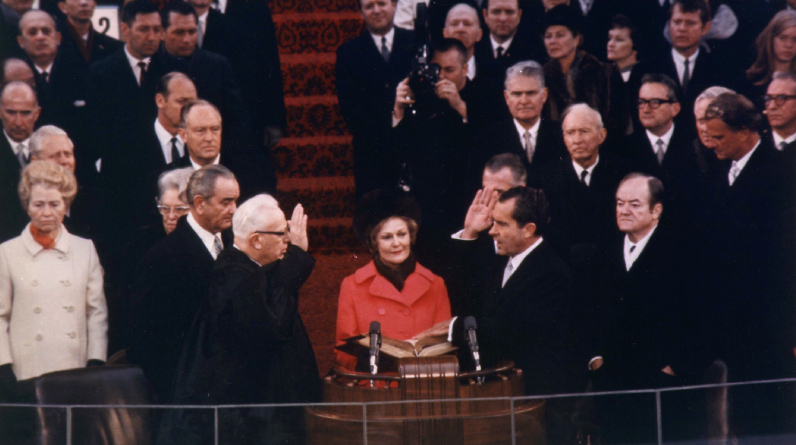All politics is local,” a phrase often attributed to former House Speaker Thomas P. “Tip” O’Neill, Jr. (D-Massachusetts). And in a similar vein, “all politics is personal.” The art of governance lies in the interactions between people, whether it be between a representative and their constituents about local issues or between representatives in the House of Representatives about national legislation.
However, there is a dark side to personal politics, and that is when politicians resort to personal attacks on their opponents. It’s the politics of personal destruction, as “wronged” politicians like to put it.
The latter definition has been rattling around in my head for the past few weeks as I’ve watched House members “get personal” with each other in a snide manner. The institution’s ability to function in an orderly and fruitful manner depends on the basic rules of “decorum and debate,” which are being threatened by the recent uptick in personality clashes in committees and on the floor.
The elephant or the donkey could be singled out as the prime suspect in this latest round of unpleasantness. But from where I’m sitting, it looks like both sides are engaging in tit-for-tat behaviour. Having been shut out of (or off of) committees and shut down on the floor by majority Democrats in the previous Congress, Republicans entered the 118th Congress with a chip on their shoulders.
Democrats entered the new Congress with their own set of grievances, having recently lost control of Congress and feeling slighted by the new majority’s haughty demeanour and policy proposals. All of this has degenerated into what I like to call a “3-V movie” of vitriol, vindictiveness, and revenge. And the new Congress has only been in session for a month so far.
The marathon voting process to choose a new Speaker didn’t help, but that was entirely due to infighting among Republicans. Unfortunately, this slowed down the process of electing committee members and establishing working structures. Meanwhile, it looked like the House was running like the Wild West, with no rules and everyone out for themselves.
I hope this is just a hiccup and that things will return to normal once members begin fulfilling their committee duties. However, I am not placing any bets on that happening. To paraphrase what I said to a colleague not too long ago, it’s as if members didn’t attend the mandatory orientation week at the start of their terms to learn the rules of Congress and how to get along with their peers. Indications of severe disorientation are present.
I recently reread Thomas Jefferson’s advice on maintaining “Order in Debate” in his “Manual of Parliamentary Practice” and have turned my attention back to House Rule XVII on “Decorum and Debate.” Having taken their cues from the British Parliament, they share the same fundamental principles.
Also Read : Netflix’s Next in Fashion will have Gigi Hadid and Tan France as co hosts and judges
When speaking, members should address the chair, not each other. The purpose of this is to keep a secure separation distance between combatants. Members should stay focused on the topic at hand and not get into personal attacks, such as accusing another member of lying, hypocrisy, bias, or ulterior motives. Committees follow the same procedures.
I will not make specific accusations or cite instances of wrongdoing that I have witnessed. Let it suffice to say that, even based on my unreliable, unscientific anecdotal evidence, the rate and intensity of hostility have increased noticeably since the last Congress. The acting Speaker pro tempore of the House has had his hands full every day (with help from the Parliamentarian) calling members to order for various infractions of the rules of decorum.

On Nixon’s first inauguration day, January 20, 1969, I started my job on Capitol Hill. Nixon’s remark in his inaugural address, “To lower our voices would be a simple thing….,” has stuck with me ever since I saw our country tearing itself apart in the late 1960s, with urban riots and anti-war protests. Until we stop shouting at each other and start speaking quietly enough for our words to be heard as well as our voices, we will not be able to learn from one another.
It’s true that things in the nation’s capital and across the country are once again a tinderbox of yelling and yelling, and they may not be as tumultuous as they were fifty years ago, but the country is still deeply divided. Congress can serve as a model for either greater unity or further polarisation in the United States.
The most practical kind of politics is the politics of decency,” said then-Vice President Theodore Roosevelt to a group of Ivy League undergraduates in 1901 at his Sagamore home in New York. We know from experience that the alternative approach is useless for accomplishing anything worthwhile. At this early stage of the new Congress, the House would do well to change course and find a better way of doing things.
